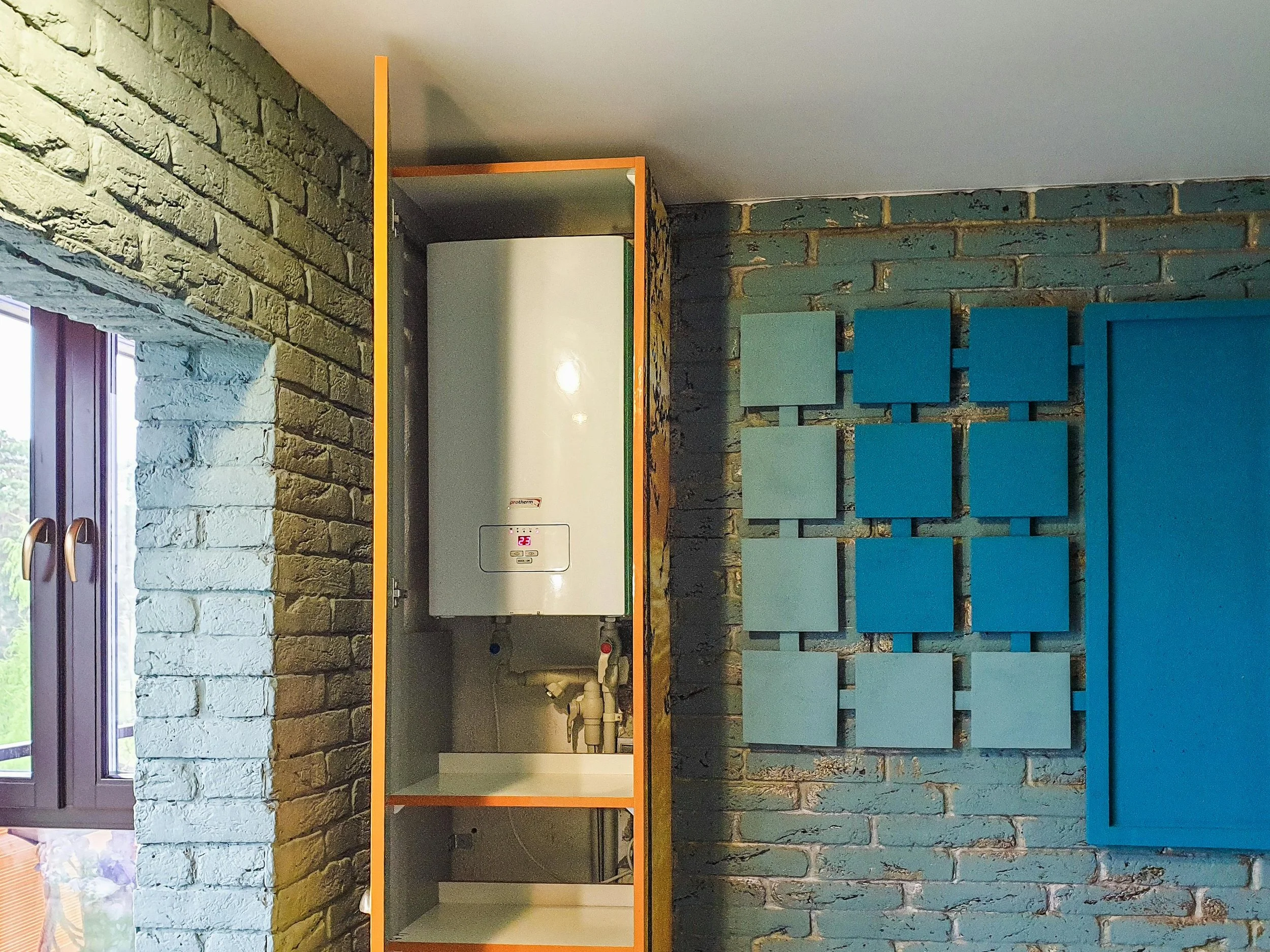How Do I Know If My Hot Water Needs to Be Fixed?
Does your lukewarm shower leave you shivering instead of invigorated? Or wait ages for the hot water to arrive at the faucet? These are just a few signs that your hot water system might need some care. Hot water plays a crucial role in modern living, supporting essential daily activities like bathing, cooking, and cleaning. However, issues with hot water systems can disrupt daily routines and cause inconvenience.
According to USA Facts, data from the Census Bureau's American Community Survey (ACS) highlights significant challenges households face regarding plumbing access. In 2021, 522,752 US households lacked complete plumbing access, with many missing basic amenities like hot or cold running water.
Before calling in a plumber, it's essential to understand common indicators that suggest your hot water needs attention. This knowledge can help you diagnose the problem and take the appropriate steps to enjoy a steady stream of comforting hot water again.
Common Signs of Hot Water System Issues
Ignoring potential problems with your hot water system can lead to bigger issues and higher repair costs down the line. Home Advisor reports that the national average cost for water heater repairs is $599, with typical ranges falling between $220 and $978. However, costs can vary widely, ranging from as little as $100 for minor repairs to as much as $1,300 for multiple repairs.
Here are some common signs that indicate your hot water system might need attention, potentially saving you money in the long run:
Inconsistent Water Temperature: This is a classic symptom. Inconsistent water temperature is a key sign of trouble. It can manifest as your shower initially feeling hot but quickly turning lukewarm or your taps fluctuating between hot and cold water. Issues with the tank's heating element, thermostat, or sediment buildup could cause these inconsistencies.
Lack of Hot Water: This is the most obvious indicator and can result from a faulty heating element, thermostat issues, or a system failure.
Unusual Noises: If your water heater makes loud noises like rumbling or banging, it might signal sediment buildup, loose parts, or a leak.
Leaks: Any leaks around your hot water tank, whether small drips or significant pooling, are a red flag. If left unaddressed, they can indicate corrosion, loose connections, or a failing tank, leading to water damage.
Rusty or Discolored Water: If your hot water has a rusty appearance or a metallic taste, it might be due to corrosion inside the tank. It can not only affect water quality but also damage pipes and appliances.
Low Water Pressure: Low water pressure can be a general plumbing concern, but experiencing it specifically in your hot water taps suggests a different culprit. It could point towards a faulty pressure relief valve or a clogged pipe within the hot water system.
Noticing these signs doesn't necessarily mean your hot water system needs immediate replacement. However, it's crucial to address these issues promptly. Call a plumber for diagnosis and recommendations to restore your hot water.
Factors to Consider
While addressing the signs of potential hot water system issues is essential, before diving into repairs yourself, it's crucial to consider these factors:
DIY vs. Professional: Attempting complex repairs without expertise can worsen the issue and pose safety risks, although basic DIY skills may suffice for minor problems. Consulting a qualified Plumber in Duncanville or another location ensures the job is done correctly and safely, potentially saving you money and frustration in the long run.
Age and Condition of the System: The average lifespan of a water heater is around 10-15 years. If your system is approaching this age and exhibiting multiple issues, a complete replacement might be more cost-effective than multiple repairs. A plumber can assess the system's condition and advise you on the best course of action.
Warranty Coverage: Check your water heater's warranty information. If the problem falls under warranty coverage, you might not be responsible for the repair costs. Reach out to the manufacturer or retailer for information regarding warranty claims.
Cost of Repairs vs. Replacement: Repairing your water heater may not always be the most cost-effective option, especially considering the severity of the issue and the system's age. Weigh the estimated repair cost against the potential cost of a new system to determine the best financial approach.
Remember, seeking professional advice is crucial before attempting to fix your hot water yourself. A qualified plumber can diagnose issues, propose cost-effective solutions, and ensure safe repairs or replacements for your hot water system. It ensures you can enjoy consistent hot water once again without any hassle.
Steps to Assess Hot Water System
Before calling a plumber, you can take some preliminary steps to assess your hot water system. Start by checking the temperature at your furthest hot water tap. If it takes an unusually long time for hot water to arrive or the temperature feels lukewarm, it could indicate a problem. Next, inspect the base of the hot water tank for any leaks or moisture buildup.
While your water heater might make some noise during operation, notice unusual banging, popping, or rumbling sounds that could point to internal issues. Finally, locate the pressure relief valve, typically a small lever on the top of the tank. Briefly lift the lever and listen for a short burst of water, indicating it's functioning correctly. Letting out a continuous stream of water or a lack of release could signal a valve issue.
Remember, these are simple checks and should not replace a professional evaluation.
When to Seek Professional Help
While the initial self-checks can provide some clues, seeking professional help from a qualified plumber is crucial in specific situations:
Complexities Arise: Calling a plumber is essential if the problem seems too intricate for DIY solutions, like diagnosing unusual noises or tackling significant leaks. Their expertise ensures the safe and efficient handling of complex repairs.
Safety Concerns Surface: Suspecting a gas leak, electrical issues, or any potentially hazardous situation requires immediate action. Shut off the water and gas supply to the heater and call a licensed plumber immediately. DIY attempts in such situations pose serious risks.
Problems Persist: Consulting a professional is recommended if your DIY efforts fail to resolve the issue. Their expertise can pinpoint the root cause and provide a lasting solution, saving you time and frustration in the long run.
Major Repairs or Replacements are Needed: Professional assistance is crucial when the diagnosis calls for significant repairs or a complete system replacement. Plumbers ensure the work adheres to safety regulations and building codes, protecting your home and investment.
Royal Flush Plumbing Adelaide suggests seeking professional help early on to prevent minor issues from escalating into more complex and expensive problems.
Preventative Maintenance Tips
Like any other appliance, your water heater benefits from regular maintenance to ensure optimal performance and longevity. Here are some simple tips to keep your system running smoothly:
Annual Flush: Schedule a professional to flush the tank annually. It eliminates sediment buildup, which can diminish efficiency and shorten the lifespan of the heater.
Temperature Setting: Maintain the water temperature setting on your heater between 120°F and 140°F. It helps prevent scalding risks while also reducing energy consumption.
Pressure Relief Valve Check: Regularly test the pressure relief valve by lifting the lever briefly and listening for a short burst of water. This ensures it functions properly and can release pressure when needed.
Regular Inspections: Conduct visual inspections of the tank and surrounding area for leaks or signs of corrosion. Addressing minor issues promptly can prevent them from escalating into bigger problems.
Forbes recommends conducting general inspections every two months or more frequently to maintain your water heater. During these inspections, check for leaks in pipes or at the bottom of the water heater. Inspect for aged gaskets, loose connections, screws needing tightening or replacement, and corrosion on the water heater or pipes.
In conclusion, occasional lukewarm showers are inconvenient, but ignoring potential hot water system issues can worsen the situation. Understanding common signs and taking preventative measures ensures your hot water system operates efficiently for years.
Seek help from a qualified plumber if you notice any concerning signs. Remember, a proactive approach saves you time and money and ensures a hot water system that keeps you warm and comfortable.





